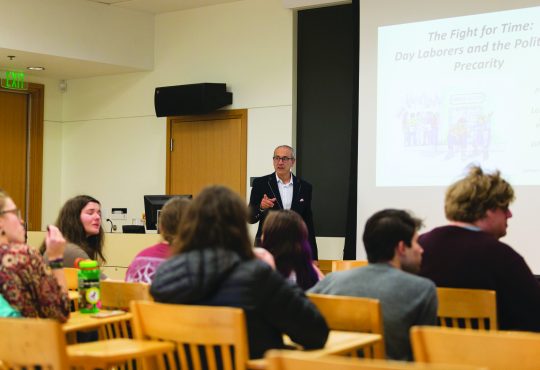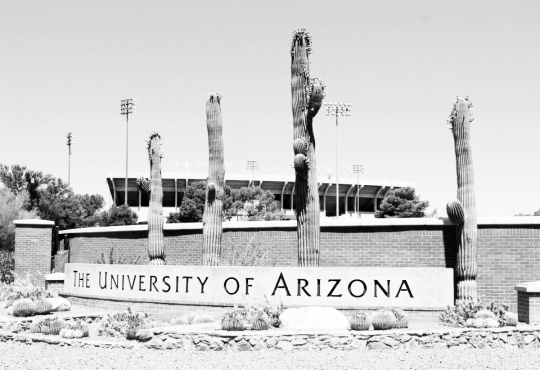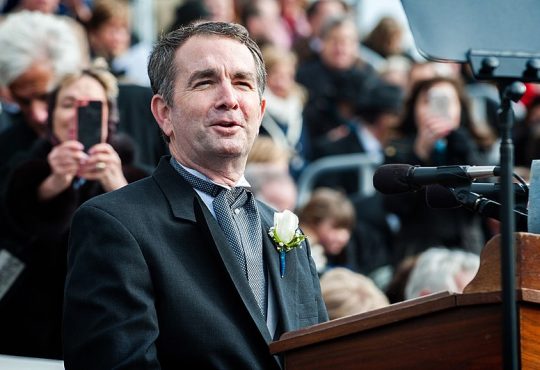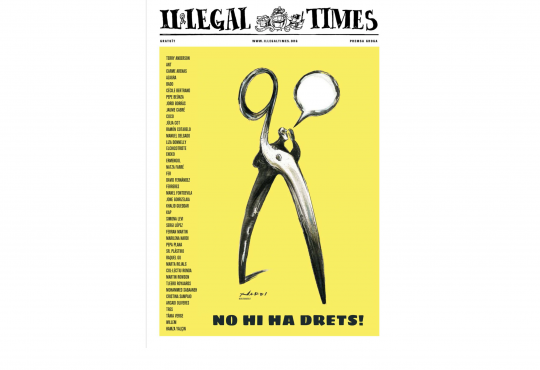by Claire Meyer
In our modern university culture, we put an emphasis on making everyone feel welcomed and included despite their differences, whatever they may be. We especially focus on embracing the LGBT community, people of different backgrounds and ethnicities and financial backgrounds.
Accommodating these groups is important, yet in our effort to include them we have left out another minority. It is no secret that among college students here at Puget Sound, the majority identify with a more liberal viewpoint.
However, what may surprise you is that a notable portion of the student body side with a different point of view. It is ironic that we live in such a politically correct and sensitive atmosphere, and yet sometimes fail to be respectful towards those who do not share our beliefs.
“They have the tendency to silence people without meaning to,” a student said. “I always have different opinions than everyone [else]. Last class there was a question about identity, and everyone was like ‘no that can’t be questioned’ and I was like ’ok, I will be quiet now.’”
Those who call themselves the most tolerant are in fact the least tolerant, because they respect everyone but those they consider not as tolerant as they,” a non-liberal student said. “If you want everyone’s voice to be heard, then you should mean everyone, even if you don’t agree.”
Not only do people with opposing viewpoints report feeling excluded and singled out from the majority view point, many also have misconceptions about the difference between minority viewpoints and in some cases tend to group them together.
I must admit that personally, before I sat down to talk to my interviewees, I jumped to the conclusion that they were conservative. I had heard the word libertarian before, however I never took the time to learn the true meaning.
One of my interviewees corrected me on my assumption, however, and revealed a few of the distinctions of libertarianism.
“A difference between conservatives and libertarians is that conservatives tend to be against same-sex marriage whereas libertarians are completely for it,” a libertarian student said. “Both conservatives and liberals want lots of government, it’s just that liberals want them in their pocket and conservatives want it in their bedroom. Libertarians want government out of both those things. However, it’s not the same as anarchy.”
Libertarian or conservative, students with different viewpoints reported feeling excluded no matter what political party they identified with.
“Imagine a classroom where a teacher is asking questions that are designed to inevitably lead the student to one point of view and 29 out of 30 students are ready to jump up and defend that point and you’re the only person who thinks the question is phrased in a fundamentally wrong way,” the libertarian student said.
From the stories of these students, it seems as if the real problem derives from our University’s failure to identify people with a different viewpoint than the majority, as a minority. It would be appropriate to identify them as a minority, because just like most minorities, they have been marginalized, specifically on campus.
Only then could we start to view them as we view the other minorities on campus: different from us, but still worthy of our tolerance and respect.






